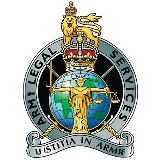*/

During the tumultuous search for pupillage, Victoria Alicea describes how the journey can make all the difference to the destination: thinking broader, picking up new skills and finding a home in-house
A wise man from California once said that life is a marathon, not a race, and while setbacks may momentarily keep people from their dreams, they are all part of the journey.
I have learned along the way that you have to keep running, and stay open to change, no matter how scary or uncertain it is. It is important to take advantage of as many opportunities as possible. There is so much to learn and, as I have been told by numerous barristers, this is a career where one never stops learning.
My journey to the Bar mirrors this mantra in the best way possible. All of these life lessons helped in crafting my applications for pupillage and eventually the most suitable area, that of tax, and the most suitable environment, an in-house chambers, found me. In the summer of 2020, in the middle of the pandemic, I secured a tax pupillage at the Employed Bar. I was ecstatic.
To provide some background, I was born and raised in New York and had dreamt of becoming a lawyer since I was nine years old. I always gravitated towards helping people as it brought me both a sense of peace and purpose. My parents, from their respective backgrounds (my mother British and my father American), always instilled a hard work ethic, teaching me that you have to work for what you want in this life, no matter what path you choose to take.
I went on to complete my undergraduate studies at the University of South Florida where I majored in criminology and graduated early with honours, becoming the first of the third generation of my family to graduate from university. I was employed with the Florida Department of Children and Families as a Child Protection Investigator, where I assisted children who were victims of abuse, making submissions in the Florida Family Courts to ensure that they were protected.
However, I had to pursue my dream of becoming a lawyer. I relocated to England and began my legal studies overseas. I undertook an LLM in Sports Law, a GDL and finally the LLM BPTC. This was all while completing mini pupillages, marshalling, work experience, pro bono and balancing daily commutes from London to Nottingham. I knew what I wanted and that I had to work hard to get it. Of course, after completion of the LLM BPTC, came the tumultuous search for pupillage. I was consistently being told that it would be difficult, and the odds were slim to none.
Due to unforeseen circumstances, my family and I moved to Belfast, where I knew no one and nothing about the culture. I secured a role with Witness Support where I was able to finely tune my communication skills, especially when dealing with victims who had witnessed the Troubles and were still feeling the after-effects. I learned to be both empathetic and sympathetic, locating relevant services for those who truly needed them.
This then led me to a role with a corporate firm in Belfast, where I was able to learn about drafting legal documents such as conference notes, skeleton arguments, witness statements and submissions, all while working in a team-based environment. The work was great as it challenged me in new ways. I learned to meet short deadlines under pressure and to tackle various Chancery areas such as land, corporate and intellectual property. I realised that these were areas I wanted to work in and learn more about as I want to be faced with new and challenging problems every day. I also had the opportunity to volunteer with the firm’s Prisoners’ Advice Service, which enabled me to learn about the criminal justice system and procedures in the UK, apart from my daily work involving corporate deals and transactions.
This balance of learning different areas of law while under one firm was something I really enjoyed. I realised that a pupillage at the Employed Bar was definitely an option for me.
I was then offered a position with Witness Service where I was able to learn about court procedure and the impact that crime has on victims. This helped me to connect the victim to the law, allowing me to understand concerns of these individuals and finding solutions to help them speak their truth in court.
Eventually, my family and I relocated back to England. Fortunately, within two weeks I was offered a position as a Registry Support Officer at the Supreme Court, another dream role. I had the opportunity to assist the Justices each day, sit in on actual hearings, help in creating the first electronic Permission to Appeal system remotely during the COVID-19 pandemic, which is currently in use today and, as a plus, met some great people.
During my pupillage, I have learned about so many different areas of taxation, worked on international cases and have advanced both my written and advocacy skills. No two days are the same and the work is challenging but rewarding. I work in a team of skilled individuals, with whom I have great rapport and in a firm that truly cares about their people.
As tax is a specialist area, I have learned to become succinct and to pick up on intricate pieces of information, which is crucial to the outcome of a case. Further, I have learned to become patient and concise and, as a woman at the Tax Bar, resilient – all necessary and relevant attributes. It has truly changed me and in the best way possible.
My final word of advice would be to think broader and wider in regards to pupillage, and gain a variety of experiences along the way, both sharpening and accumulating legal and interpersonal skills. I was able to develop advocacy skills in the Department of Children and Families, interpersonal skills working with fragile individuals from Victim Support, technical drafting skills from my time at corporate, and empathy, sympathy and legal procedure from the Witness Service and the Supreme Court for my pupillage applications.
Do be open to different areas of law and pupillage at the Employed Bar, where you can learn both individually and as part of a team, working on complex and elaborate cases.
There will be setbacks, as with everything, but you have to pick yourself up and keep pacing yourself. Listen to those along the way who will help and support you. As for me, the marathon continues.
BACFI, the Bar Association for Commerce, Finance and Industry, is the specialist Bar association for the Employed Bar. BACFI’s membership reflects the broad and diverse nature of the Employed Bar and includes barristers working in-house in solicitors’ firms, various industry sectors, regulatory roles and government departments. BACFI supports the efforts being made by the Bar Standards Board, the Bar Council and the Inns of Court to increase training opportunities for new barristers and has been lobbying hard for more flexible pupillage arrangements. BACFI believes that the rules remain too rigid and particularly unworkable within commercial firms. The Professional Standards Committee of BACFI would like to hear from anyone who intends to apply, or has recently applied, to have their firm recognised as an Authorised Training and Education Organisation. For more information, see www.bacfi.org or email: secretary@bacfi.org. See also BACFI’s The A-Z of Offering a Pupillage in Commerce and Industry.

A wise man from California once said that life is a marathon, not a race, and while setbacks may momentarily keep people from their dreams, they are all part of the journey.
I have learned along the way that you have to keep running, and stay open to change, no matter how scary or uncertain it is. It is important to take advantage of as many opportunities as possible. There is so much to learn and, as I have been told by numerous barristers, this is a career where one never stops learning.
My journey to the Bar mirrors this mantra in the best way possible. All of these life lessons helped in crafting my applications for pupillage and eventually the most suitable area, that of tax, and the most suitable environment, an in-house chambers, found me. In the summer of 2020, in the middle of the pandemic, I secured a tax pupillage at the Employed Bar. I was ecstatic.
To provide some background, I was born and raised in New York and had dreamt of becoming a lawyer since I was nine years old. I always gravitated towards helping people as it brought me both a sense of peace and purpose. My parents, from their respective backgrounds (my mother British and my father American), always instilled a hard work ethic, teaching me that you have to work for what you want in this life, no matter what path you choose to take.
I went on to complete my undergraduate studies at the University of South Florida where I majored in criminology and graduated early with honours, becoming the first of the third generation of my family to graduate from university. I was employed with the Florida Department of Children and Families as a Child Protection Investigator, where I assisted children who were victims of abuse, making submissions in the Florida Family Courts to ensure that they were protected.
However, I had to pursue my dream of becoming a lawyer. I relocated to England and began my legal studies overseas. I undertook an LLM in Sports Law, a GDL and finally the LLM BPTC. This was all while completing mini pupillages, marshalling, work experience, pro bono and balancing daily commutes from London to Nottingham. I knew what I wanted and that I had to work hard to get it. Of course, after completion of the LLM BPTC, came the tumultuous search for pupillage. I was consistently being told that it would be difficult, and the odds were slim to none.
Due to unforeseen circumstances, my family and I moved to Belfast, where I knew no one and nothing about the culture. I secured a role with Witness Support where I was able to finely tune my communication skills, especially when dealing with victims who had witnessed the Troubles and were still feeling the after-effects. I learned to be both empathetic and sympathetic, locating relevant services for those who truly needed them.
This then led me to a role with a corporate firm in Belfast, where I was able to learn about drafting legal documents such as conference notes, skeleton arguments, witness statements and submissions, all while working in a team-based environment. The work was great as it challenged me in new ways. I learned to meet short deadlines under pressure and to tackle various Chancery areas such as land, corporate and intellectual property. I realised that these were areas I wanted to work in and learn more about as I want to be faced with new and challenging problems every day. I also had the opportunity to volunteer with the firm’s Prisoners’ Advice Service, which enabled me to learn about the criminal justice system and procedures in the UK, apart from my daily work involving corporate deals and transactions.
This balance of learning different areas of law while under one firm was something I really enjoyed. I realised that a pupillage at the Employed Bar was definitely an option for me.
I was then offered a position with Witness Service where I was able to learn about court procedure and the impact that crime has on victims. This helped me to connect the victim to the law, allowing me to understand concerns of these individuals and finding solutions to help them speak their truth in court.
Eventually, my family and I relocated back to England. Fortunately, within two weeks I was offered a position as a Registry Support Officer at the Supreme Court, another dream role. I had the opportunity to assist the Justices each day, sit in on actual hearings, help in creating the first electronic Permission to Appeal system remotely during the COVID-19 pandemic, which is currently in use today and, as a plus, met some great people.
During my pupillage, I have learned about so many different areas of taxation, worked on international cases and have advanced both my written and advocacy skills. No two days are the same and the work is challenging but rewarding. I work in a team of skilled individuals, with whom I have great rapport and in a firm that truly cares about their people.
As tax is a specialist area, I have learned to become succinct and to pick up on intricate pieces of information, which is crucial to the outcome of a case. Further, I have learned to become patient and concise and, as a woman at the Tax Bar, resilient – all necessary and relevant attributes. It has truly changed me and in the best way possible.
My final word of advice would be to think broader and wider in regards to pupillage, and gain a variety of experiences along the way, both sharpening and accumulating legal and interpersonal skills. I was able to develop advocacy skills in the Department of Children and Families, interpersonal skills working with fragile individuals from Victim Support, technical drafting skills from my time at corporate, and empathy, sympathy and legal procedure from the Witness Service and the Supreme Court for my pupillage applications.
Do be open to different areas of law and pupillage at the Employed Bar, where you can learn both individually and as part of a team, working on complex and elaborate cases.
There will be setbacks, as with everything, but you have to pick yourself up and keep pacing yourself. Listen to those along the way who will help and support you. As for me, the marathon continues.
BACFI, the Bar Association for Commerce, Finance and Industry, is the specialist Bar association for the Employed Bar. BACFI’s membership reflects the broad and diverse nature of the Employed Bar and includes barristers working in-house in solicitors’ firms, various industry sectors, regulatory roles and government departments. BACFI supports the efforts being made by the Bar Standards Board, the Bar Council and the Inns of Court to increase training opportunities for new barristers and has been lobbying hard for more flexible pupillage arrangements. BACFI believes that the rules remain too rigid and particularly unworkable within commercial firms. The Professional Standards Committee of BACFI would like to hear from anyone who intends to apply, or has recently applied, to have their firm recognised as an Authorised Training and Education Organisation. For more information, see www.bacfi.org or email: secretary@bacfi.org. See also BACFI’s The A-Z of Offering a Pupillage in Commerce and Industry.

By the Chartered Governance Institute UK Ireland

Q and A with Major Susie Brooke, Legal Officer in Army Legal Services

Have you considered being a barrister in the British Army? Here’s an insight into a career in Army Legal Services

Clare describes her journey from Crown Prosecution Service legal trainee to Senior Crown Prosecutor, a typical ‘day in the life’ and the inspiration she draws from her career

What's it like being a legal trainee at the Crown Prosecution Service? Amy describes what drew her to the role, the skills required and a typical day in the life

Barristers can learn more about the varied arenas in which their mediation skills can be deployed at the Civil Mediation Council Annual Conference on 6 and 7 November 2024